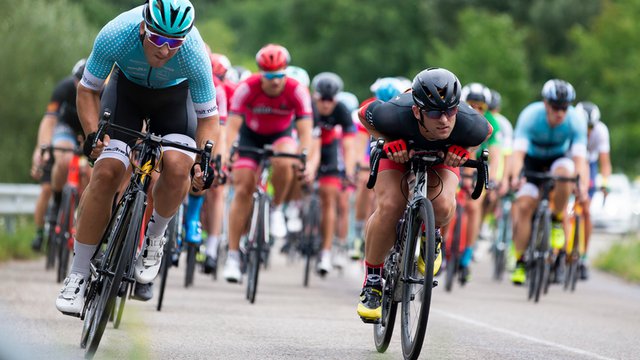

To organise a sporting event, you must take into account a number of internal and external factors to ensure a positive outcome for all parties involved. From the brand and/or company organising the event, to the sponsors and participants, to the media broadcasting the event and the fans and spectators whether they are there in person or following it on TV or online.
If you want to develop your professional career in the sports industry, you can opt for the Sports Management degree at Universidad Europea de Madrid. You will be in close contact with the sports world through sports centres, sports laboratories and the best facilities nationwide.
Whether a local sports event or a large multinational event, there are a number of factors to consider when organising a sports event. Lets take a look at them now:
Promote a brand, publicise a locality to attract tourism, raise funds for a charitable cause, etc. There are many reasons for organising a sporting event.
However, it is important to be clear about what the event is intended to achieve and, of course, this objective must be measurable (number of registrations, sales of a product or service, etc.). This is the only way to know whether we have achieved what we set out to achieve and, therefore, whether the event has been a success or not.
Another thing to be clear about during the planning phase is who the event is aimed at: age, geographic origin, interests, purchasing power, etc.
Fun run, triathlon, football or basketball championship, swimming competition, etc. The possibilities are endless. The possibilities are endless. Even so, when making this decision, you should not lose sight of the goal you have set for yourself or the target audience of the event.
Also, you will have to decide who will participate or compete in it: anonymous people, professional athletes, celebrities, etc.
Make a list of places where you think your sporting event could take place.
Then contact those who manage them (sports clubs, federations, schools, town councils, etc.) to check if they have the appropriate infrastructures and all the necessary equipment for their correct development, a good maintenance service, availability, prices, emergency and evacuation plans, etc.
Also check whether their use for an event such as yours will require any permits, licences or insurance.
It is time to make a forecast of the expenses, according to the material and human resources you have available and those you will need to acquire, and of the benefits you intend to obtain.
This will help us to set the budget and, consequently, to see if the organisation of the event will be economically viable.
Now that the numbers have been crunched, it is time to look for sponsors who will contribute to covering the costs of the sporting event through contributions in kind (equipment, prizes, supplies, etc.), or financial contributions.
It is common for companies or institutions to offer this type of collaboration in exchange for gaining visibility (appearing in advertising, giving their name to the event, etc.) or even participating in the event.
An event of this nature requires the hiring of qualified personnel: organising staff, judges or sports referees and auxiliaries, cleaning service, catering, photographers, security, logistics, merchandising, etc.
All of them must have specific skills for the job they are going to do, as well as having clear duties before, during and after the event.
Something that we must not neglect is how, when and in what way we will publicise our sporting event: date, place, registration period, contact details, etc.
To do this, we must plan and implement a communication strategy, both online and offline, consistent with the brand image that we have previously designed: media, website, social networks, newsletters, advertising, press kits, posters, invitations, among others.
At the end of the event, take stock to see if the initial objectives have been achieved.
Take the opportunity to review what unforeseen events arose during the planning and execution of the event, which of these failures could have been foreseen, assess whether the solutions provided were up to the circumstances, and detect areas for improvement for future occasions.
The following are examples of major sporting events that are recognised worldwide. These are important dates in the calendar that move the whole world: public, industry, media and many others.
One of the most eagerly awaited sporting events in the world, the final of the US football championship is the event that raises the most money in a single day. It not only stands out because the final is played, but also because of the number of brands that take advantage of the moment to launch their latest advertising spots.
This is a series of sporting events, where prestigious brands such as Mercedes-Benz, Ferrari, Red Bull and others take part. It is the best-known competition in the automobile sector, where many brands take advantage of the visibility of the event to promote themselves or make themselves known.
In the world of football, the UEFA Champions League is one of the most eagerly awaited events. Thirty-two European teams take part in this tournament, divided into rounds until the final. Many brands are interested in participating in this type of event through different actions.
Well, you already have some of the skills and knowledge on how to organise a sporting event and its most relevant examples worldwide. If you want to go into more detail it’s important to combine your experience with a formal education and at Universidad Europea we have a tailor-made solution for you.
Among our academic offer, we have some degrees that will help you to achieve a complete and competitive professional profile in the Sports Management sector: